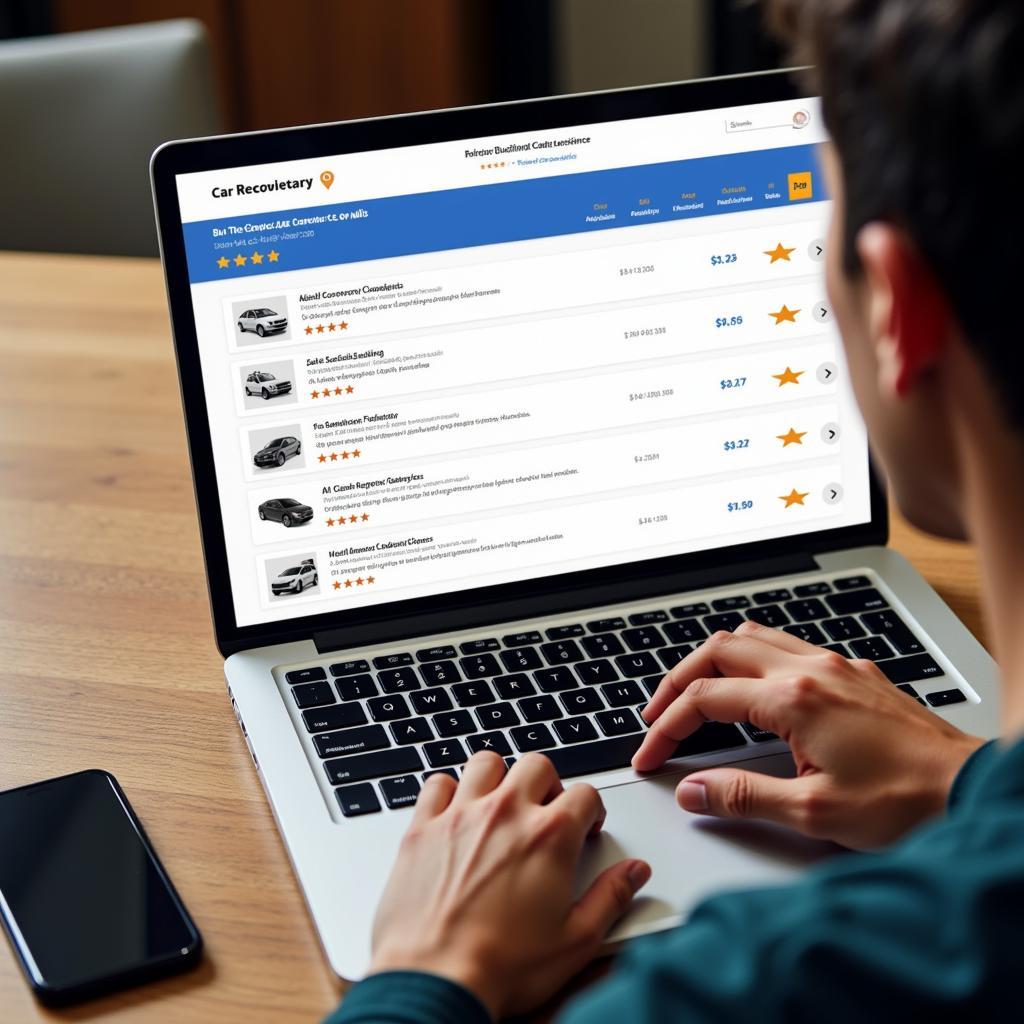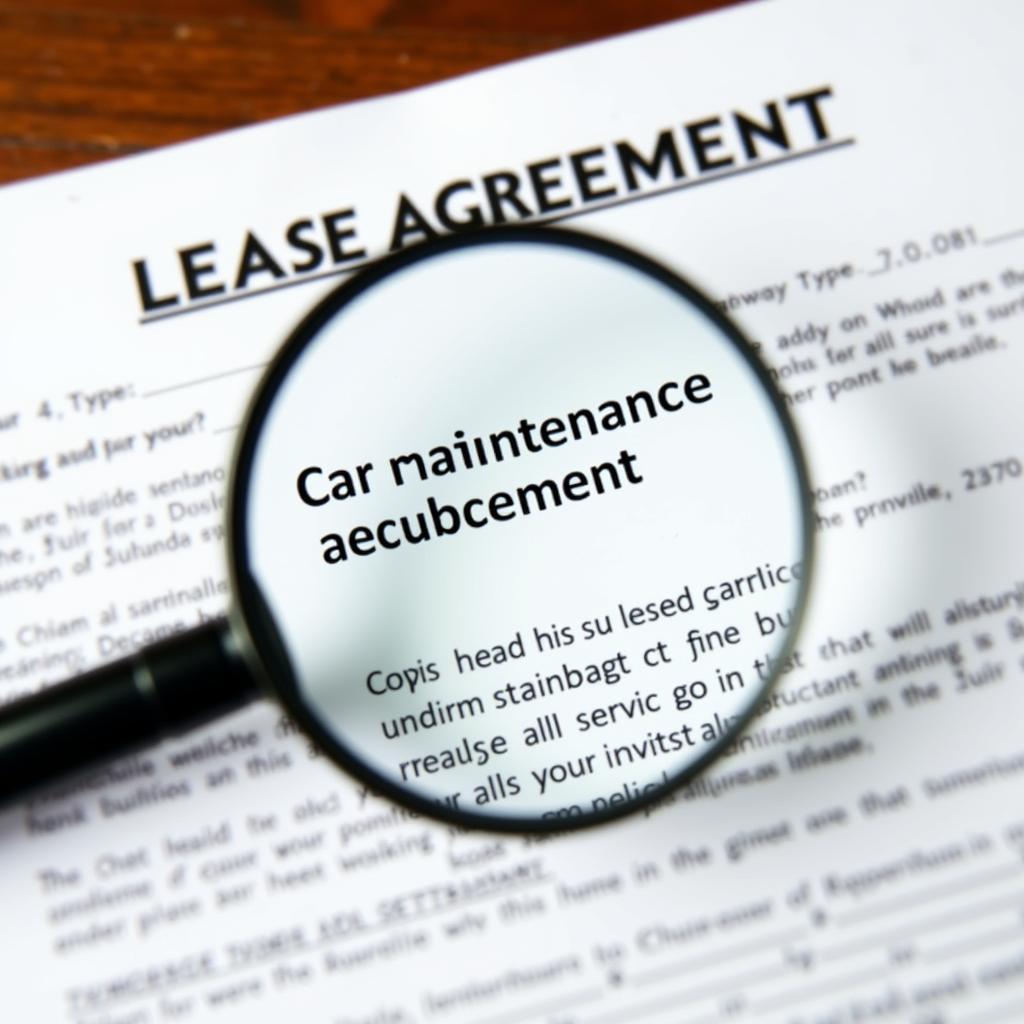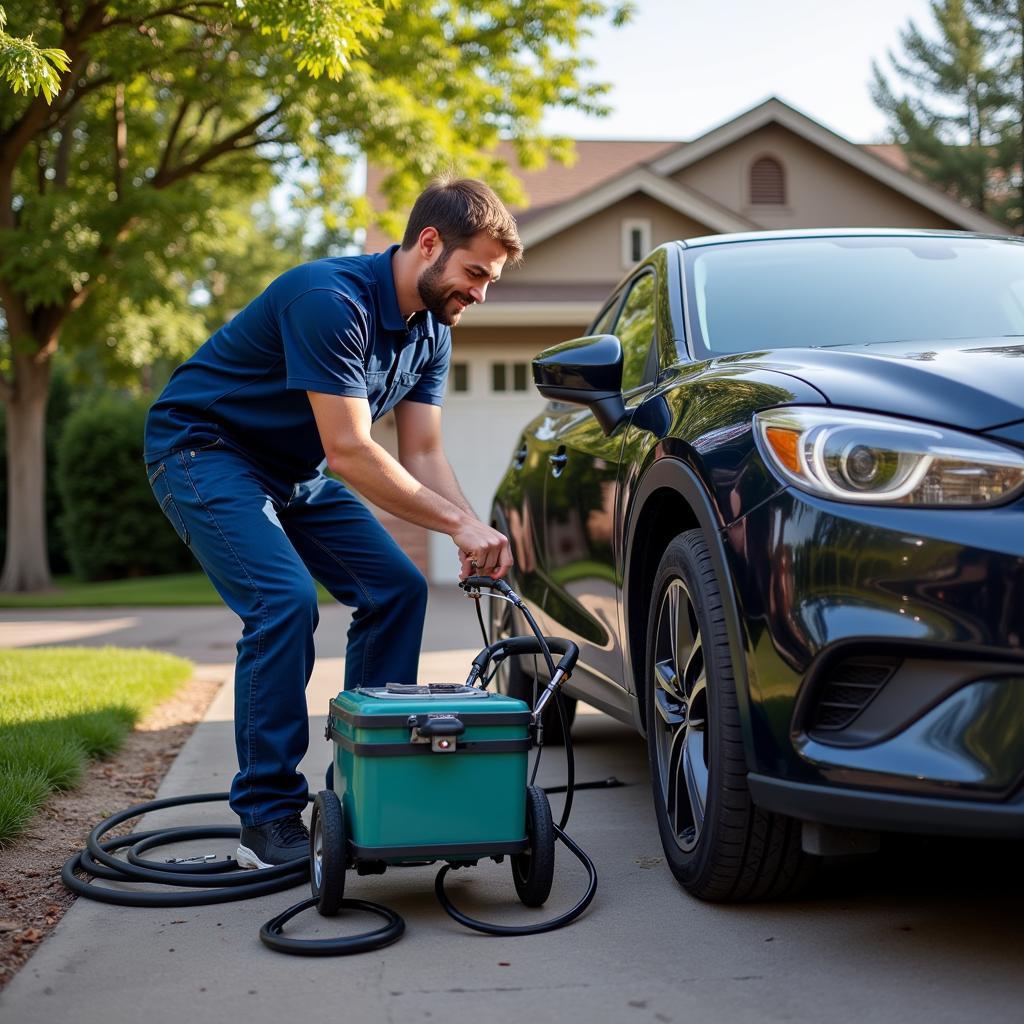What is the Best Car Recovery Service?
Experiencing a car breakdown can be incredibly stressful, leaving you stranded and unsure of what to do next. That’s when a reliable car recovery service becomes your lifeline. But with so many options available, how do you determine the best car recovery service for your needs?
This comprehensive guide will delve into the essential factors to consider when choosing a car recovery service, ensuring you have the information and support needed during those unexpected roadside emergencies.
Understanding Your Needs and the Different Types of Car Recovery Services
Before diving into the specifics of finding the best car recovery service, it’s essential to understand your needs and the types of services available. Ask yourself these questions:
- What type of vehicle do you own? A standard car, a motorcycle, or a larger vehicle like an RV will require different recovery equipment and expertise.
- How far do you frequently drive? If you’re often traveling long distances, nationwide coverage becomes crucial.
- What is your budget? Recovery services can range in price, so it’s important to consider your budget constraints.
Here are the most common types of car recovery services:
- Towing: This is the most basic service, where your vehicle is directly towed to a mechanic or a location of your choice.
- Roadside Assistance: This service covers minor issues like flat tires, jump-starts, fuel delivery, and lockout services.
- Accident Recovery: Specifically designed for accident scenes, this service often involves specialized equipment and coordination with law enforcement.
Key Factors to Consider When Choosing a Car Recovery Service
Now that you understand the different service types, let’s explore the critical factors to consider when making your decision:
1. Coverage Area and Availability
The best car recovery service should ideally offer extensive coverage, especially if you frequently travel beyond your city limits. Look for services that:
- Provide nationwide or at least regional coverage
- Operate 24/7, ensuring assistance regardless of the time or day
- Have a robust network of service providers for quick response times
“Which is the best car breakdown recovery service” often depends heavily on where you are located and how far you travel.
2. Reputation and Customer Reviews
Before entrusting your vehicle to a recovery service, it’s crucial to check their reputation:
- Online Reviews: Websites like Yelp and Google My Business provide valuable insights from previous customers.
- Industry Recognition: Affiliations with reputable organizations like AAA or the Better Business Bureau can indicate reliability.
- Word-of-Mouth: Ask friends, family, or your local mechanic for recommendations.
 Customer Reading Car Recovery Service Reviews on a Laptop
Customer Reading Car Recovery Service Reviews on a Laptop
3. Services Offered
Evaluate the range of services offered by the recovery provider. Consider if they offer:
- Battery jump-starts
- Flat tire changes
- Fuel delivery
- Lockout services
- Towing for different vehicle types
- Accident recovery
4. Pricing and Payment Options
Recovery services can vary significantly in price. Compare quotes from different providers and ensure transparency in their pricing structure.
- Membership Fees: Some services operate on a membership basis, offering discounts and additional perks.
- Pay-Per-Use: Others allow you to pay for individual services as needed.
- Additional Costs: Inquire about potential extra charges like mileage, after-hours service, or specific vehicle types.
5. Response Time and Communication
When you’re stranded, a quick response time is critical. Inquire about:
- Estimated arrival times: Choose a provider that prioritizes prompt service.
- Communication channels: Opt for a service that offers multiple communication options like phone, text, or app-based updates.
“What is home health care services](https://carserviceo.com/what-is-home-health-care-services/)” might seem unrelated, but good communication is essential in both scenarios, ensuring a smooth and stress-free experience for the user.
Tips for Choosing the Best Car Recovery Service for You
- Check with your insurance provider: Your auto insurance policy may already include roadside assistance coverage.
- Read the fine print: Before signing any contracts, thoroughly understand the terms and conditions, including limitations or exclusions.
- Prepare for emergencies: Keep important documents like your driver’s license, insurance information, and emergency contacts readily accessible in your vehicle.
Conclusion
Selecting the best car recovery service is a crucial aspect of responsible car ownership. By considering the factors outlined in this guide, you can make an informed decision that provides you with peace of mind and reliable assistance when you need it most. Remember, a trustworthy car recovery service can be a lifesaver during unexpected roadside situations.
FAQs
1. Is a car recovery service worth the cost?
Investing in a car recovery service or roadside assistance provides peace of mind and financial protection against unexpected breakdowns. The cost of a tow or roadside assistance service can easily exceed the price of a yearly membership.
2. How do I find a reputable car recovery service near me?
Utilize online resources like Google Maps, Yelp, and AAA to find highly-rated services in your area. Additionally, ask for recommendations from friends, family, or your local mechanic.
3. Can I use a car recovery service if I’m not the owner of the vehicle?
Policies vary depending on the provider, but generally, you should be able to use a car recovery service even if you’re not the registered owner as long as you can provide the necessary documentation and authorization.
4. What should I do while waiting for the recovery service to arrive?
If possible, move your vehicle to a safe location off the road. Turn on your hazard lights, engage your parking brake, and stay inside your vehicle with your seatbelt fastened until help arrives.
5. How can I avoid the need for car recovery services in the future?
Regular vehicle maintenance, including oil changes, tire rotations, and brake inspections, can significantly reduce the likelihood of breakdowns.

